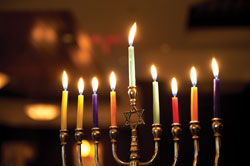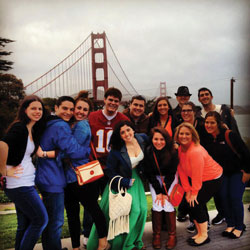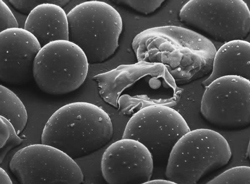December is one of the most important months of the whole year. Not only does it signify the end of a year but it is also filled with many different holidays. While some people are getting into the Christmas spirit, it is important to focus on all of the other significant holidays that December brings.
One of the most celebrated holidays is Hanukkah. For those who practice Judaism, Hanukkah is an important celebration of a very historical moment in their religion. Heide Estes, a professor of English at the University explained, “The holiday commemorates a time when the Assyrians and the Jews were at war, and the Jews were driven out of the Temple in Jerusalem.”
Estes continued, “Eventually they defeated the Assyrians and regained control of the Temple, and prepared to rekindle the ‘eternal light’ that is always burned in the Temple, but discovered they had enough oil to last only for one day. It takes eight days, apparently, to make new olive oil. By a miracle, the original oil lasted until new oil could be obtained.”
This is why those who practice Judaism light the Hanukkah Menorah for each of the eight nights of Hanukkah and say the blessings. “You have eight candles and one taller candle called the Shamash. Each night you light it starting from right to left and you always start with the number candle that represents the night it is. For example, on the second night of Hanukkah, you would light the second candle in from the right first and then the new candle to the right of it,” said Dr. Michael Schwebel, a Coastal Resilience and Climate Adaptation Specialist at the University.
Another fun Hanukkah tradition is playing Dreidel. This is commonly played with Gelt, which are chocolate coins.
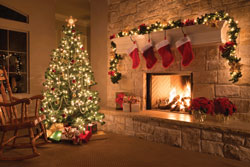 Rachael Thalheimer, a junior social work student, said, “Dreidel is almost like a gambling game, where you “anti-up” gelt and the dreidel (a toy top) dictates what you win from the collective pile of gelt.”
Rachael Thalheimer, a junior social work student, said, “Dreidel is almost like a gambling game, where you “anti-up” gelt and the dreidel (a toy top) dictates what you win from the collective pile of gelt.”
Thalheimer continued, “The dreidel has four letters on it: nun, hay, gimel, and shin. Each letter dictates how much gelt you can win from the middle pile. Nun means you get nothing, hay means you get half, shin means you put one of your gelt into the middle pile, and gimel means you get all the coins. Once someone wins gimel, you start a new round where everyone anti-ups again, and the game goes until someone wins all the gelt.”
During these gatherings to celebrate Hanukkah, a lot of food is eaten. One of the most commonly eaten foods during Hanukkah is Latkes. Latkes are potato pancakes that you can put different toppings on.
Schwebel said, “Some families put different toppings on them like sour cream or apple sauce. My family puts confectioners’ sugar on top.” Another food eaten during Hanukkah is Sufganiyot, which are like jelly doughnuts.
Along with Hanukkah and Christmas, Kwanzaa, an African American and Pan-African holiday, is also celebrated in December. Kwanzaa begins on Dec. 26 and ends on Jan. 1; it lasts seven days to honor the seven principles.
According to officialkwanzaawebsite.org, these seven principles are unity, self-determination, collective work and responsibility, cooperative economics, purpose, creativity, and faith. Kwanzaa means “first fruits” in Swahili and is a time for people to come together to celebrate African culture and history.
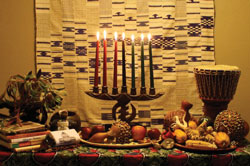 Kaila Lane, a senior communication student, said, “Kwanzaa reflects the African thoughts of the important values in life, mostly family.” These principles are honored by lighting a candle in the Kinara for each of the seven nights.
Kaila Lane, a senior communication student, said, “Kwanzaa reflects the African thoughts of the important values in life, mostly family.” These principles are honored by lighting a candle in the Kinara for each of the seven nights.
The colors associated with Kwanzaa hold symbolic meanings. Lane said, “The colors of Kwanzaa are red, green, and black. Red stands for the struggles of the past and present. Green stands for a good future. Black represents the rich skin color of people of African descent.”
These holidays are a special time for families and friends to come together. Dr. Brian Greenburg, the Chair of American Social History, said in regards to Hanukkah, “It is mostly about family.” This is one of the main foundations for all of the holidays including Kwanzaa and Christmas.
So, no matter what you celebrate, take this time to be with your family and enjoy the holidays and the New Year.
IMAGE TAKEN from highpoint.edu
IMAGE TAKEN from cdn.history.com
IMAGE TAKEN from extras.mnginteractive.com

